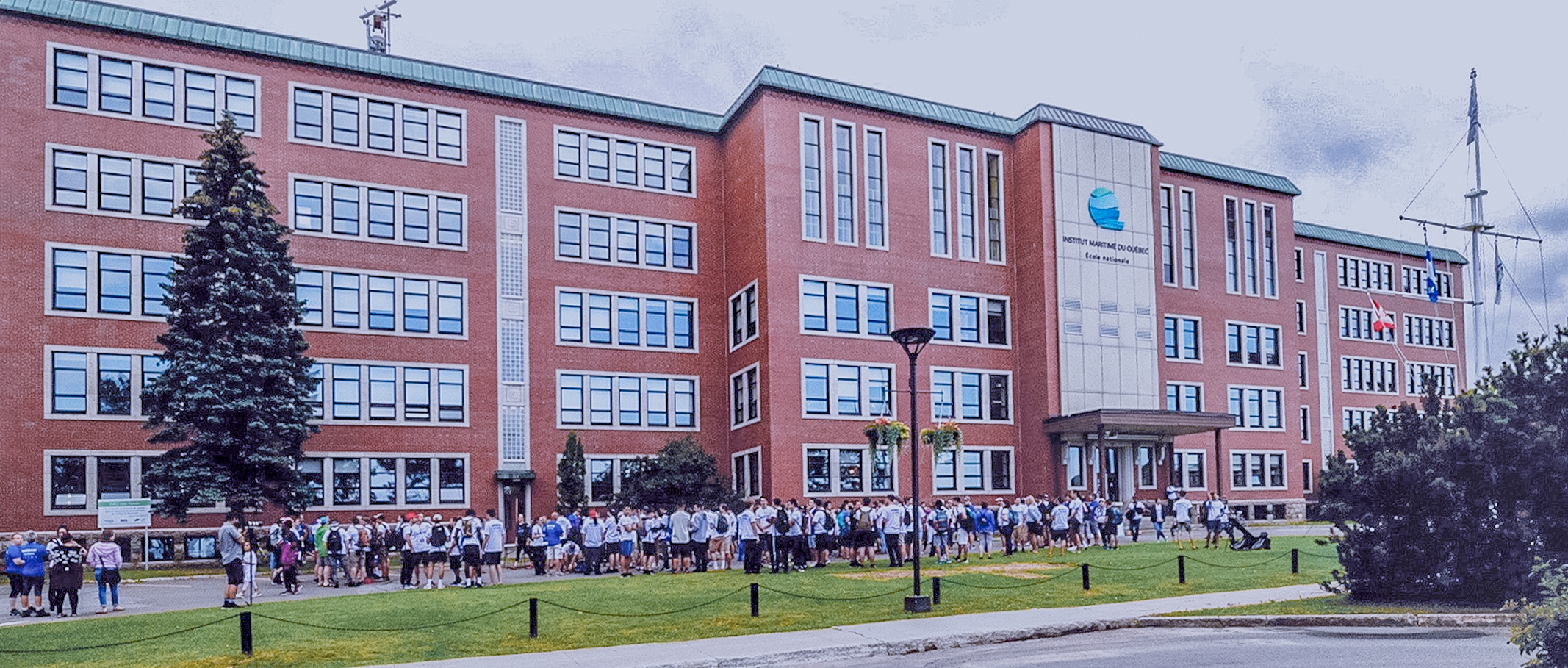I was lucky enough to grow up among people working at CTMA, a maritime company in the Magdalen Islands. At that time, when an opportunity presented itself to me for a job as an onboard waitress, I didn’t hesitate. That is when my journey in the maritime field started.
On this job, I’ve had the opportunity to discuss with Officers and Seamen and learn more about the IMQ and the necessary studies to become a Navigation Officer.
I was barely 18 when I decided to leave home. 5 hours on a boat and 10 hours on the road later, I arrived to my final destination: the Institut maritime du Québec in Rimouski.
It was a big move, but I guarantee you that I don’t regret my choice even for a second.
Let’s be real, there are times when my hometown feels pretty far. When I’m homesick, I remind myself that the IMQ is a bit like my second home because it makes me feel good and I get to build strong relationships!
Fortunately for me, I had already completed 2 years of Cegep before signing into the navigation program. For me, this means a lighter schedule than most students that need to follow between 7 and 9 classes per term, spread across 40 hours a week from Monday to Friday.
The terms are well loaded and you need to be studious regarding homework because it’s easy to fall behind. Fortunately, the IMQ offers multiple resources to the student body for guidance and assistance, like the student help centre.
I’m an early bird and I like my morning routine. Normally, I get up at around 6:30 a.m., take a shower and savour a delicious breakfast in order to start the day right. Since I live 10 minutes away from school, I like to walk there to get some fresh air before my classes. It is one of the many perks of living in Rimouski, so close to the River.
Obviously, since the start of the COVID pandemic, my everyday life has slightly changed. I switched my daily meeting with friends at the cafeteria for a couple of additional hours of sleep, right before my classes start.

8:00 a.m., I have to focus on my first 50-minute class. A second class will follow, followed by a 15-minute break. Usually, I would have used that break to go see my friends in the school halls.
After 4 years spent at the IMQ, I can affirm that what I like the most about this school is its evolving aspect. At first, the classes are easy, then get a little harder as we acquire more knowledge. We learn very various things; for example, I’ve had the chance to follow a very exciting class about machinery where I learned a lot about the way motors and hydraulic systems function!
Moreover, another advantage of the program is how few term papers we have to do. It is mostly practical or theoretical exams, sometimes online (thanks COVID!), sometimes on-site. We can then improve our knowledge on the field through the many internships available to us.
A major aspect of the navigation program is having to complete 365 days at sea in order to pass the oral exam at Transport Canada. The internships are a perfect opportunity to test our knowledge and confirm our preferences (vessel and travel types, for example). I loved my internship at CTMA, it allowed me to take up some great challenges: once, we were stuck in ice and had to go back to Nova Scotia just in time to be able to cross the waters!
Anyways, like any other program, it is not always easy. Some classes are demanding and the schedules are pretty loaded. However, the friendships that I’ve formed and the knowledge that I’ve gathered on such a fascinating field make me believe that I would undoubtedly choose the same journey again!
Today is my favourite day: my afternoon is free of classes! While my friends will have to carry on their day with a basic course after lunch, I’ll be able to get some fresh air, away from my computer screen. As I mentioned earlier, we are lucky in Rimouski to be so close to the water. I like to walk right by the River, watching the calm tides, knowing that I have only a few months left before I can navigate them as a Certified Officer.



